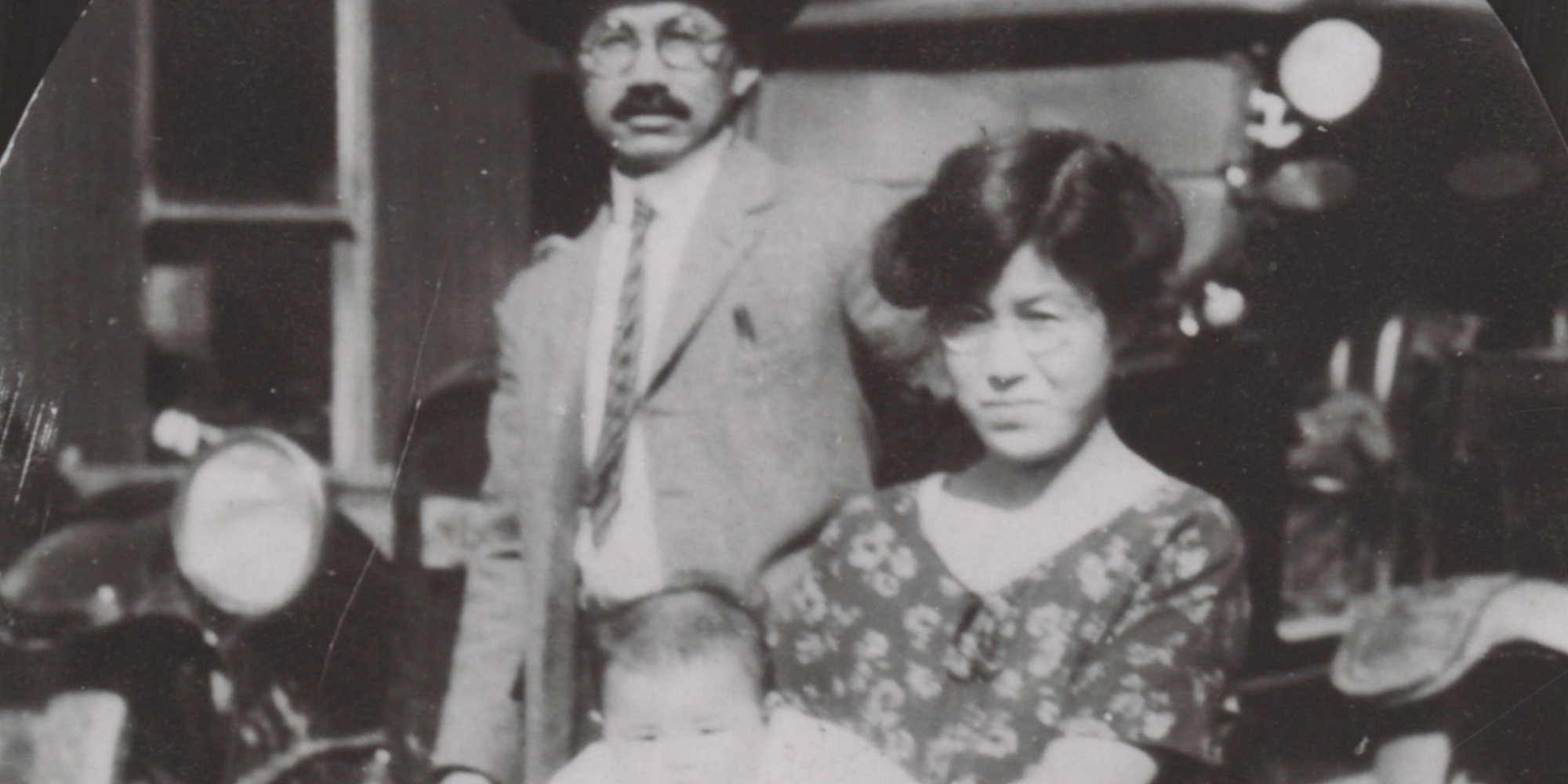This Is What It Means To Imprison A Whole Category Of People

WASHINGTON When Congressman Mark Takano (D-Calif.) was a child, his grandfather took him to a hotel near a highway in Bellevue, Washington. The elderly Japanese immigrant didn’t speak much English, Takano recalled, but he could sense he was trying to show him something important.
Takano learned later that his family had owned a 5-acre plot of land where the hotel now stood. But his grandfather never had a chance to start a small business there or otherwise fulfill his own version of the American dream.
After Japan attacked Pearl Harbor in 1941, the United States imprisoned Takano’s grandparents, along with more than 120,000 other people of Japanese descent. They had committed no crime. They were never convicted. But during their incarceration, his grandparents were unable to work or pay property taxes, and they lost the land.
When Takano speaks of his grandfather, he becomes emotional. “This moment that we’re experiencing in our country makes me think of [him],” he said. “It makes me want to resolve … to make sure nothing like this ever happens again.”
Takano has reason to worry. During his campaign, President-elect Donald Trump expressed support for a maintaining a database of all Syrian refugees coming into the United States, and did not rule out the possibly keeping a database of all Muslims living in the country.
Since winning the election, Trump adviser Kris Kobach has said Trump’s team is considering a registry for Muslim immigrants, one like the controversial database that was temporarily implemented after the Sept. 11 terrorist attacks. Kobach helped design that registry while working under then-Attorney General John Ashcroft, and says he is ready to help the Trump team implement it.
Carl Higbie, a prominent Trump supporter, defended the proposal this week, saying the imprisonment of Japanese-Americans during World War II had set a “precedent.”
Trump has not defended these U.S. prison camps, but he invoked them while discussing his proposed Muslim ban on the campaign trail, and he has not publicly denounced Higbie’s remarks. “What I’m doing is no different than FDR,” Trump said in December 2015, referring to President Franklin D. Roosevelt’s decision to authorize the forced removal of Japanese-Americans from their homes on the West Coast. Trump also said he did not know whether or not he would have supported imprisoning Japanese-Americans at the time, noting only that “war is tough, and winning is tough.”
The Trump campaign and Higbie did not respond to The Huffington Post’s request for comment. After public outrage erupted over his remark, Higbie said on CNN that the camps were a “huge black mark on our society and we would never want to do it again.”
Meanwhile, Trump’s campaign said this week that “President-elect Trump has never advocated for any registry or system that tracks individuals based on their religion, and to imply otherwise is completely false.”
Rep. Doris Matsui (D-Calif.), who was born in a prison camp in Arizona, called Higbie’s rhetoric “outrageous, unacceptable, and reckless” in a statement.
For decades, both Democrats and Republicans have denounced this dark chapter of American history. President Ronald Reagan signed legislation in 1988 formally apologizing to the victims and providing reparations. For people of Japanese ancestry whose families were imprisoned by the U.S. government, the Trump team’s invocation is particularly painful.
Nina Wallace, a 29-year-old from Seattle who works for Densho, a nonprofit that documents oral histories of Japanese-Americans, said her great-grandfather, a Japanese immigrant, was arrested after Pearl Harbor because he ran a general store that sold items considered to be “contraband,” such as flashlights and radios. He was held in a jail in Spokane for about a month. Her great-grandfather is no longer alive, and her grandmother doesn’t really talk about it. “But some of her siblings have told me that it was really humiliating seeing their father being led away like that,” she said.
Referencing Higbie’s comments, Wallace said that it’s “pretty infuriating to hear someone who clearly knows very little about this history sort of cite it as an excuse to demonize Muslims. As a Japanese-American, it kind of feels, ‘Oh, here we go again.’”
Rep. Mike Honda (D-Calif.), who spent three years at a prison camp in Colorado, said that America’s greatness is based on its adherence to our principles. He also said that the treatment of Japanese-Americans during World War II meant that some of their children became “completely disillusioned and angry, and many … still are angry today.”
“That’s how you create folks who will be dissidents,” he added.
Honda’s father said the government had told Japanese-Americans they were in camps for their own protection, the lawmaker recalled. But his father told him, “Michael, if you’re in a camp with barbed-wire fences around you, and machine guns on the corners of the camp pointed inward, that’s not really for your protection. They’re keeping us incarcerated.”
Takano said he would like to see Trump clarify his position on a Muslim registry and denounce Higbie’s remarks. “When I see someone just so flippantly go on a cable show … and speak so glibly about registries and internment camps I can’t do this job without saying something about that,” he said.
“I’m very, very anxious about the fact that we potentially have people who will populate the agencies of our government who don’t understand the history,” Takano added.
The Huffington Post is documenting the rising wave of anti-Muslim bigotry and violence in America. Take a stand against hate.